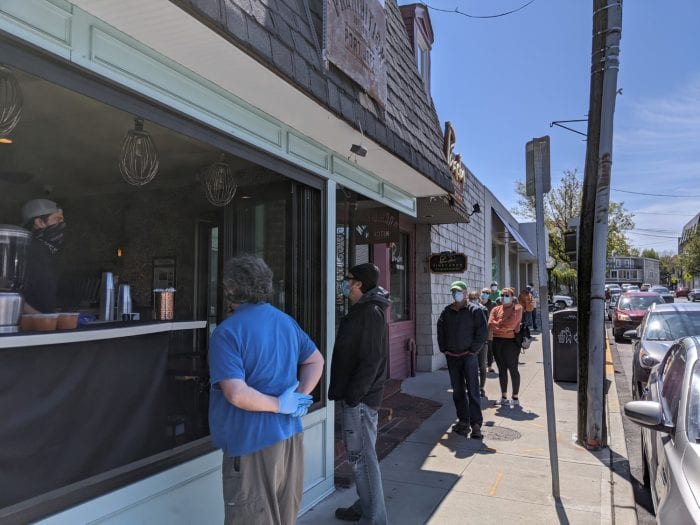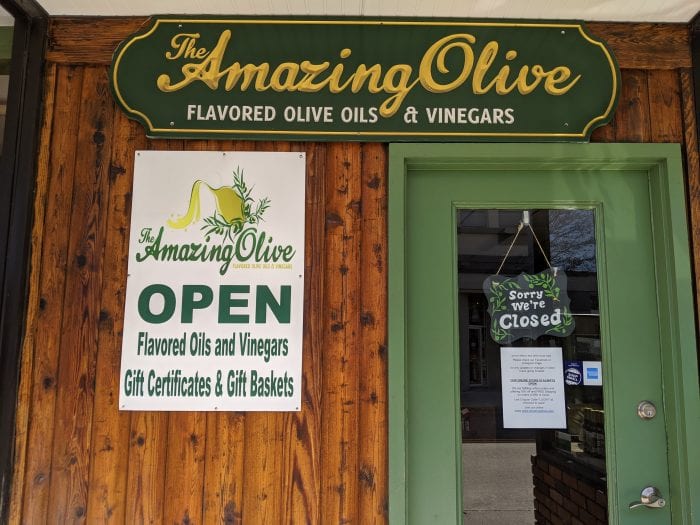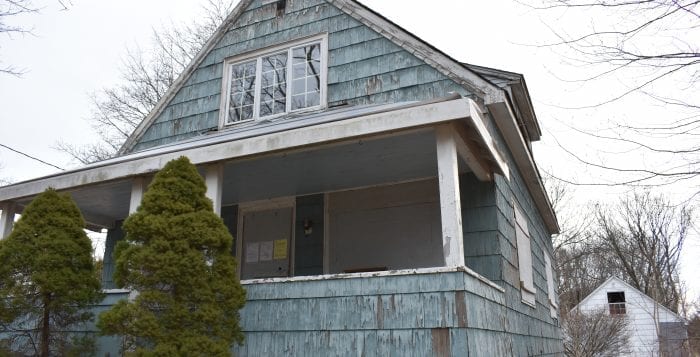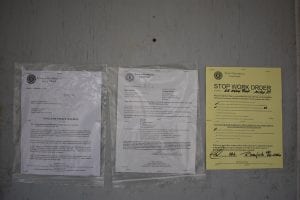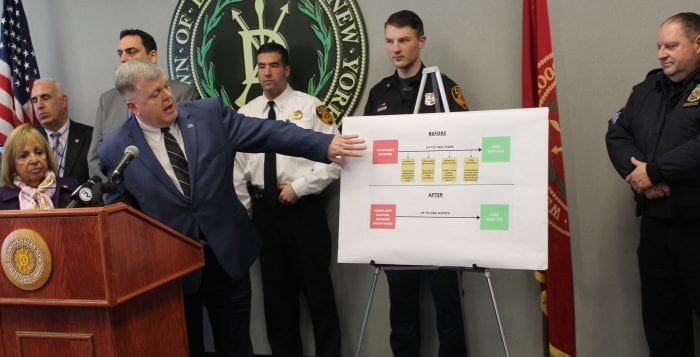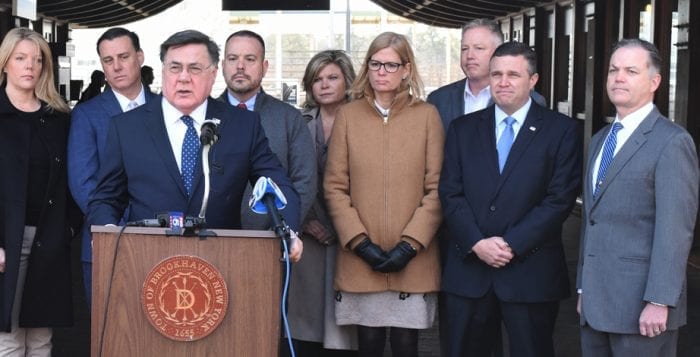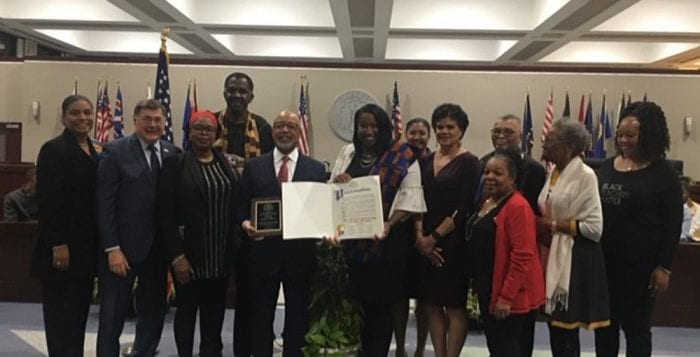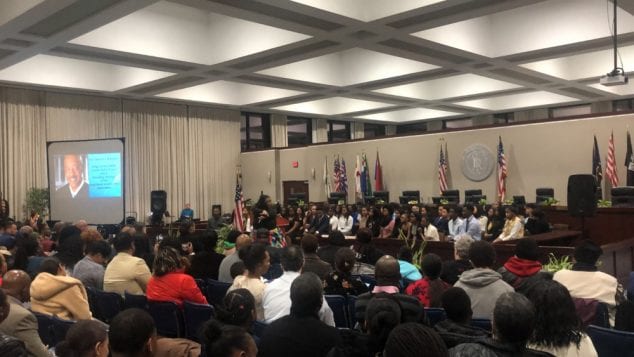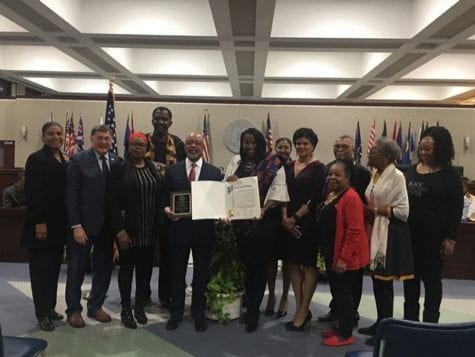After two months of shutdown, area businesses were given the go-ahead to restart operations when Suffolk County reached Phase One of the state’s reopening process. It is the first of four phases as state officials slowly lift restrictions meant to curb the spread of the coronavirus.
For many storefronts, it is the first step on the path to recovery. Here’s how things are going for a few retailers in Port Jefferson.
Renee Goldfarb, owner of Origin of Era boutique in Port Jefferson, said it’s been a delicate balance of making sure they are operating safely and trying to make some revenue again. For select retailers like hers, they are limited as of now to only curbside pickup.
“We’ve encouraged our customers to check out our online store and if they like a certain item they can email, and we’ll have it ready for them at the door,” she said. “It’s been difficult because we are very hands on, we want the customer to be able to try on a piece but we’re limited on what we can do.”
Goldfarb hopes owners can eventually make up for some of their losses. But she also took issue with how the state handled big retailers remaining open.
“Do I think it was implemented the right way? I don’t think so,” she said. “I understand Walmart and Target sell essential products, but people were also able to buy nonessential items. That completely puts mom-and-pop shops at a disadvantage. They should have closed that area off [to customers during the shutdown].”
Abby Buller, who runs the Village Boutique in Port Jefferson, said sales have been slow the first few days open. On Memorial Day weekend, a time when the businesses thrive with the influx of people, Buller said she only saw about six people walking the streets.
“There was no one on the streets, why should they come to a town where they can’t go shopping. This is a shopping and eating town,” she said. “The bars are closed; the restaurants are only allowing pickup. Right now, there is no reason for the Connecticut people to come and take the ferry — there’s nothing to do once you get here.”
With eight weeks of no income coming in, the boutique owner is glad she can start bringing in some sales. She was also frustrated with how the state handled the initial shutdown restrictions and agreed with Goldfarb..
“What they’ve done to small businesses is ridiculous,” she said. “From the beginning they allowed Target, Walmart, Home Depot, Lowe’s to sell nonessential products,” Buller said. “The fact that they were allowed to stay open during this time and make more money is disgusting, small businesses have been suffering.”
Brookhaven officials have spoken out on the issue.
“I am very concerned about the prospects for the future of our small businesses,” said Supervisor Ed Romaine (R), at a recent press conference. “We need to be safe and we need to be smart, but we don’t need rules that work against mom-and-pop businesses when there’s no reason to do that. I ask the governor and county executive to take action now and help our small businesses and downtowns fully reopen again.”
The comments came after recommendations from the town’s post-COVID-19 task force looking at economic recovery. Members of the committee said the state’s plan has favored big box stores.
Brookhaven Councilwoman Valerie Cartright (D-Port Jefferson Station) had similar sentiments.
“We are asking the state to take a different approach when reopening businesses and use a more objective standard, such as the square footage recommendation made by the town a few weeks ago,” she said. “This will place our small businesses on more equal footing with the other larger and big box businesses.”
With Phase Two close by, owners will have to continue to obey social distancing guidelines. Retailers will be required to limit capacity. Patrons and workers are also required to wear masks.
Mary Joy Pipe, the president of the Greater Port Jefferson Chamber of Commerce and owner of East End Shirt Company is trying to make the best of their current situation as they look towards phase two.
“Sales have been near zero, though we’ve had some customers,” she said. “But it’s important right now to be open, present and let people know we’re here.”
Going into phase two, Pipe will be changing the interior of the store to meet social distancing guidelines. Masks and the use of hand sanitizers will be required.
“I think many of us look forward to starting a on a new page, looking back is painful,” she said. “We’re grateful to the community, they’ve had us in their minds and we feel that.”
In addition, once Phase Two begins, Goldfarb may implement an appointment-only model where up to six people can be in the store at a given time. She is also considering private shopping experiences.
“My store is 700 square feet, we’re in a confined space. I’ll be requiring customers to wear masks until I feel it is comfortable to stop,” Goldfarb said. “I may lose customers but it’s our responsibility to be safe.”

